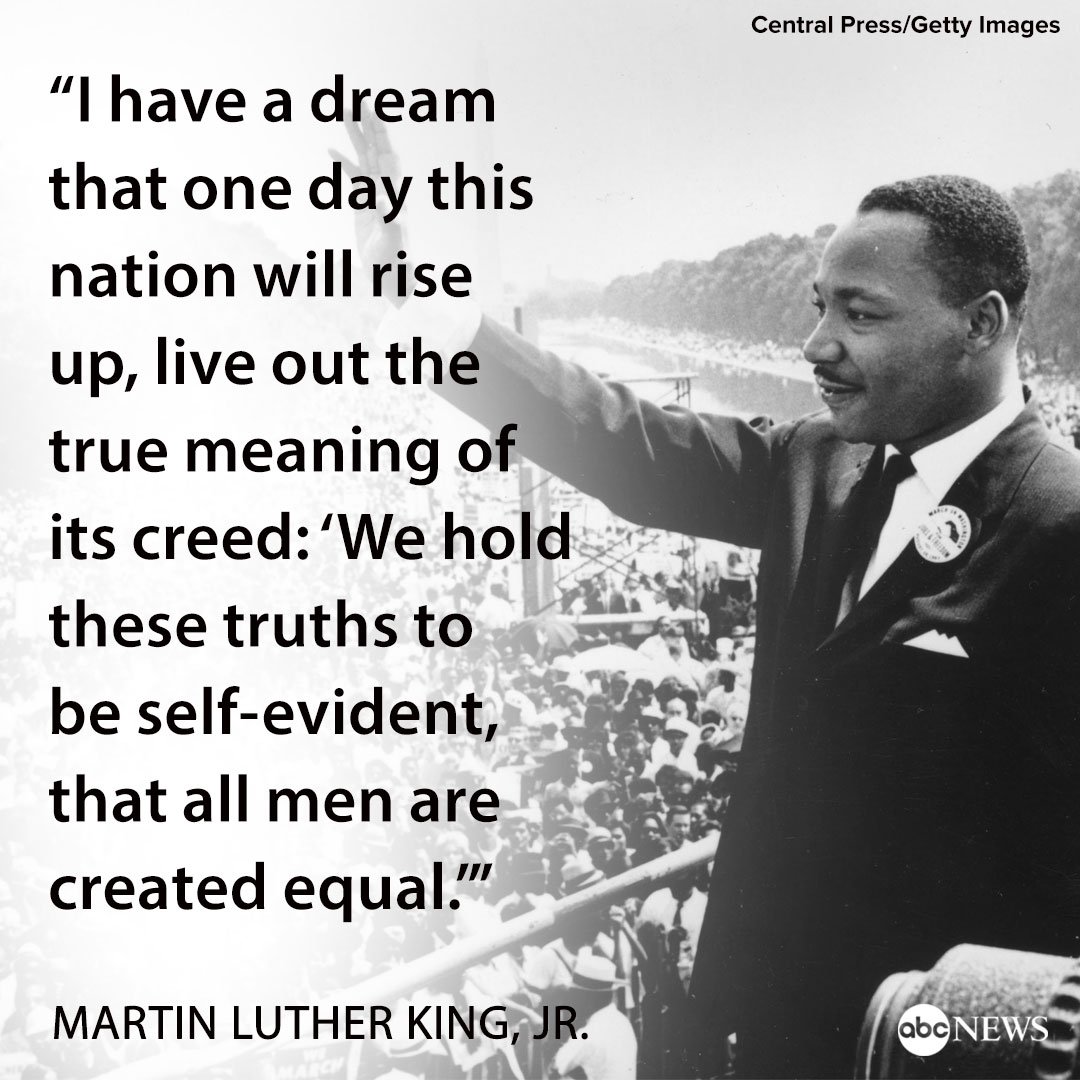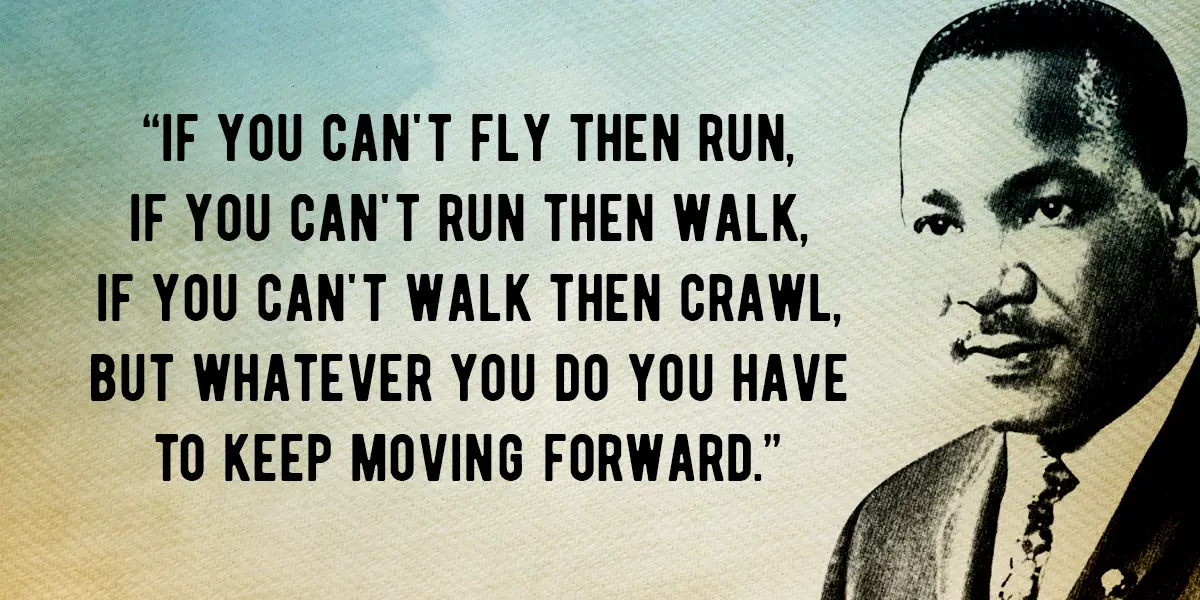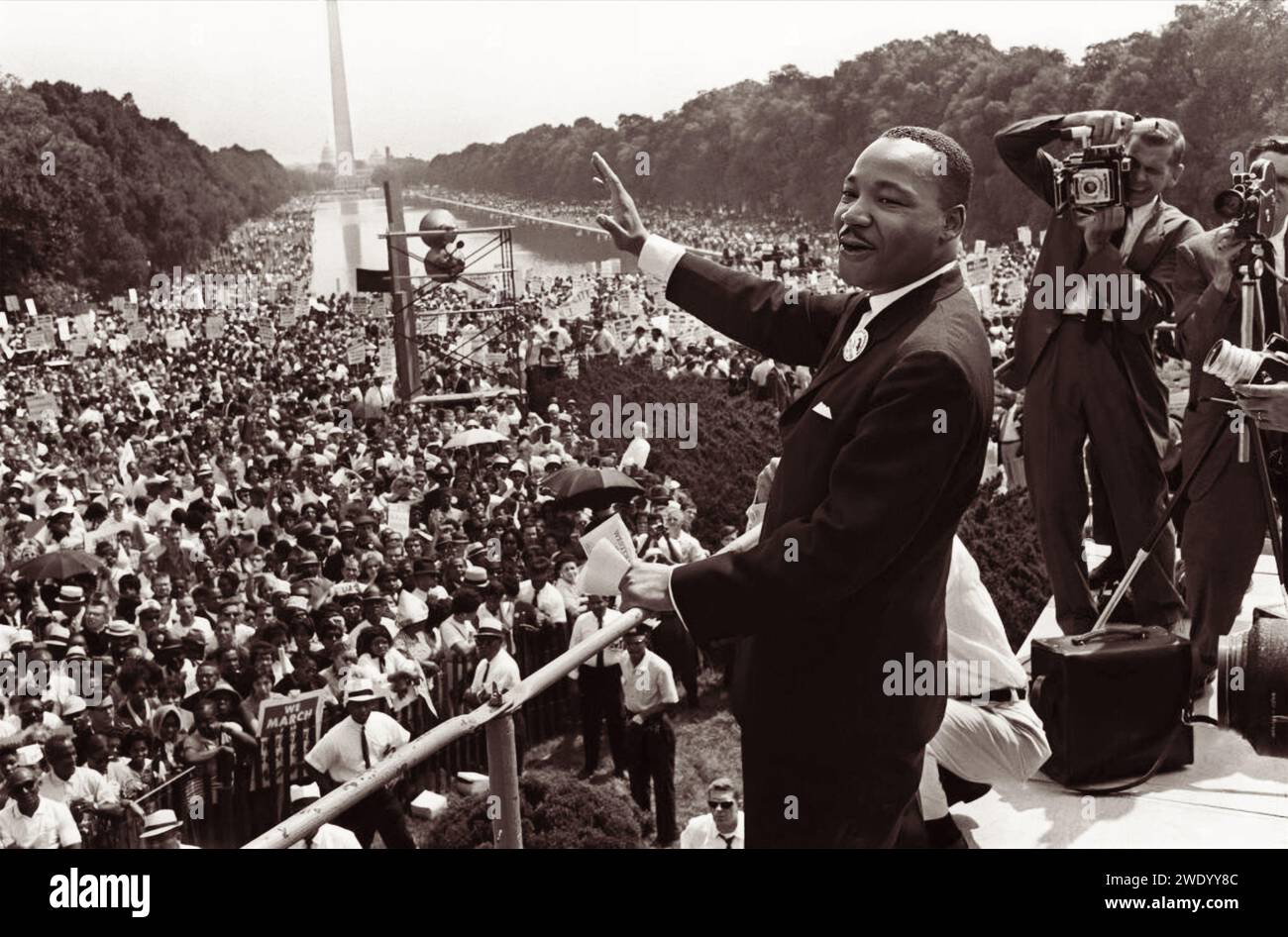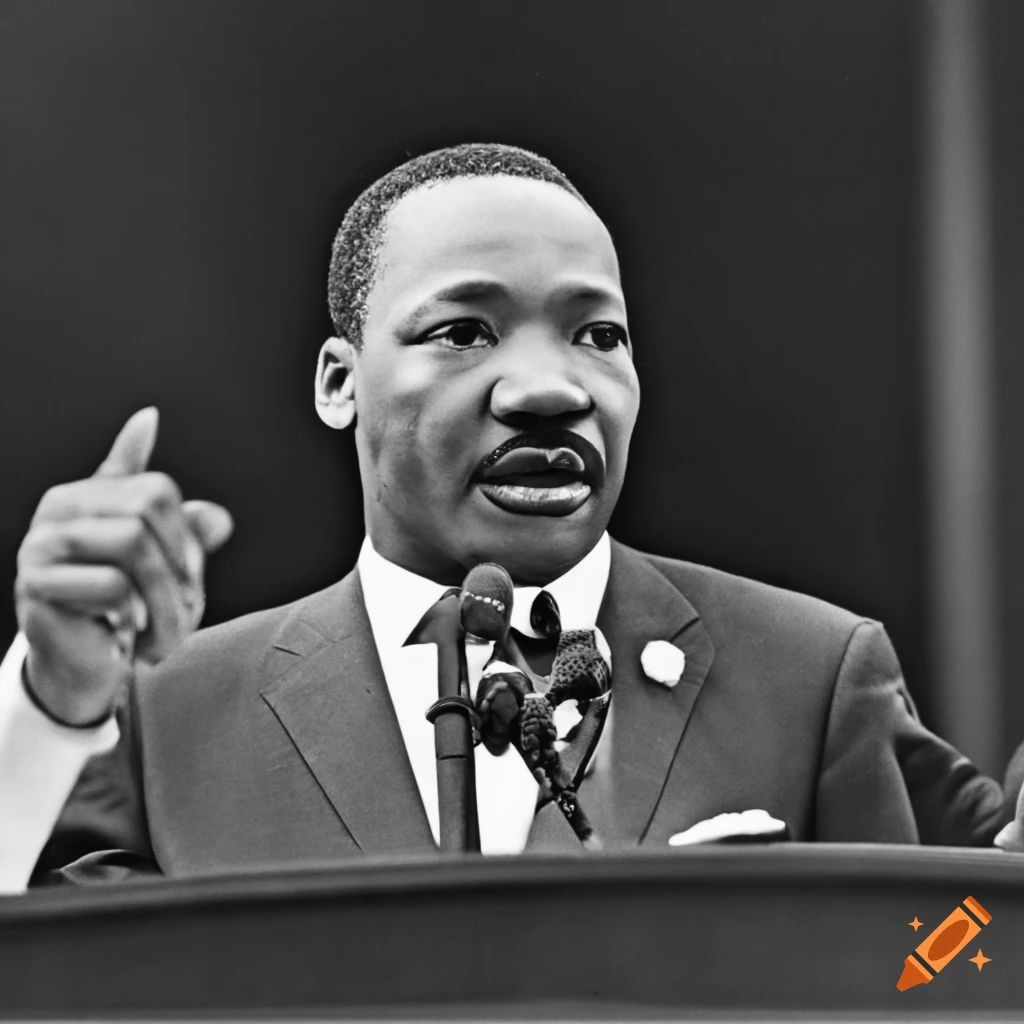Gallery
Photos from events, contest for the best costume, videos from master classes.
 |  |
 |  |
 |  |
 | /cdn.vox-cdn.com/uploads/chorus_image/image/64605234/9c25108251.0.jpeg) |
 |  |
 |  |
On August 28, 1963, Martin Luther King Jr. gave a speech at the Lincoln Memorial that became a key part of U.S. history. When we look back at the ‘I Have a Dream’ speech, it’s not just to remember the past; we see that its messages are still important in today’s world. Here are five passages and key takeaways from the “I Have a Dream” speech that still matter in 2021: “Five score years ago, a great American, in whose symbolic shadow we stand today, signed the Emancipation Proclamation. Resonating beyond American borders, Martin Luther King Jr.’s ‘I Have a Dream’ speech profoundly influenced international perceptions of the civil rights struggle in the United States, highlighting the global implications of racial injustice. Professor of Communication Leroy Dorsey explains the rhetorical devices used by Rev. Martin Luther King, Jr. in his 1963 speech and reflects on why the address remains relevant. Sixty years ago, Dr. Martin Luther King, Jr., stood on the steps of the Lincoln Memorial to deliver his historic “I Have a Dream” speech. That speech is as powerful and relevant today as it was then. Find out why. Martin Luther King Jr.’s famous speech, ‘I Have a Dream,’ has had a huge effect on the fight for civil rights and continues to inspire people who want fairness and justice all over the world. He gave this powerful speech during an important event called the March on Washington for Jobs and Freedom. Martin Luther King Jr.'s iconic 1963 "I Have a Dream" speech is well known, but there are several other key speeches that also resonate as historical signposts of the Civil Rights When Martin Luther King Jr. delivered his iconic “I have a dream” speech in 1963, it was a call-to-action for racial equality. King urged America to “make real the promises of democracy,” focusing on the necessity for change and also hope for a better America. On that day, Rev. Dr. Martin Luther King, Jr. gave his iconic "I Have a Dream" speech, a stirring plea for racial equality delivered at the height of the civil rights movement. Fifty-eight years later, King's words still evoke a deep longing for racial justice. The Rev. Martin Luther King Jr. gave his iconic “I Have a Dream” speech in 1963 on the steps of the Lincoln Memorial. He chose that location in part to honor President Abraham Lincoln as “a great American, in whose symbolic shadow we stand today.” Now, millions of people honor King in the same way. We are approaching the 55th anniversary of Dr. Martin Luther King Jr.'s famous "I Have a Dream" speech, delivered Aug. 28, 1963, in Washington, D.C. Martin Luther King Jr’s “I Have A Dream Speech” was seared into the minds of thousands of people on August 28, 1963. He spoke in the hopes of solidifying a future for African-Americans and passing on the message of equality amongst all men and women. This Martin Luther King Jr. Day Weekend, members of the Dartmouth College community are reflecting on the speech the civil rights icon gave at Dartmouth 0n May 23, 1962.The visit was a front-page A Speech That Changed America In August of 1963, Dr. Martin Luther King, Jr. delivered a speech on the steps of the Lincoln Memorial that helped shaped America into the country that it is today. The speech, titled “I Have a Dream,” expresses the various challenges that the Negroes, or African Americans, experienced during this period. Martin Luther King Jr.’s timeless “I Have a Dream” speech resonates deeply with the values and principles at the heart of United Way of Broward County. Dr. King envisioned a world where every individual — regardless of their background or circumstances — could achieve his or her full potential in health, education, and financial The Reverend Martin Luther King, Jr. towers over history as a civil rights legend—known for leading the movement to end segregation and counter prejudice against Black Americans in the 1950s and JSilas. Dr. Martin Luther King Jr, and his fight for equality, and his message is still relevant today. He believed in an America that could really live up to its own principals, and that’s what made MLK so bold and the radical person that he was; challenging America to walk the talk. Full text to the "I Have A Dream" speech by Dr. Martin Luther King Junior I am happy to join with you today in what will go down in history as the greatest demonstration for freedom in the history of our nation. Five score years ago, a great American, in whose symbolic shadow we stand today, signed the Emancipation Proclamation. Martin Luther King, Jr. - Civil Rights, Nonviolence, Equality: In the years after his death, King remained the most widely known African American leader of his era. His stature as a major historical figure was confirmed by the successful campaign to establish a national holiday in his honor in the United States and by the building of a King memorial on the Mall in Washington, D.C., near the Martin Luther king’s Speech, “I Have a Dream” is still relevant today because it reflects the main problems and social issues affected modern society. In spite of great changes in social life and human rights, racial prejudices and stereotypes are common things in our society.
Articles and news, personal stories, interviews with experts.
Photos from events, contest for the best costume, videos from master classes.
 |  |
 |  |
 |  |
 | /cdn.vox-cdn.com/uploads/chorus_image/image/64605234/9c25108251.0.jpeg) |
 |  |
 |  |